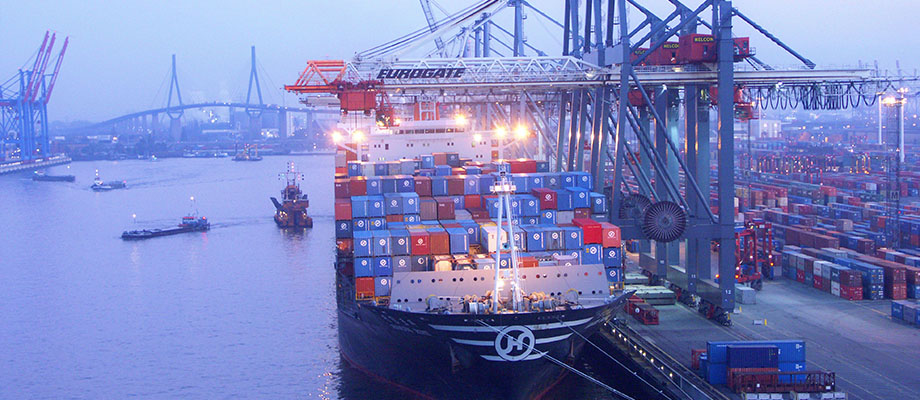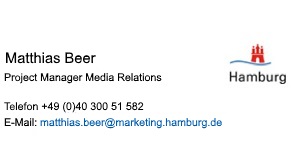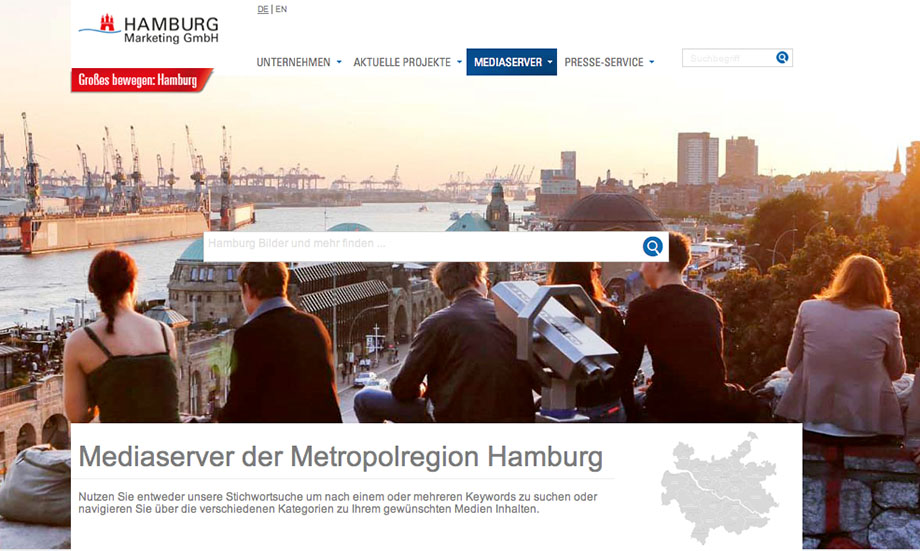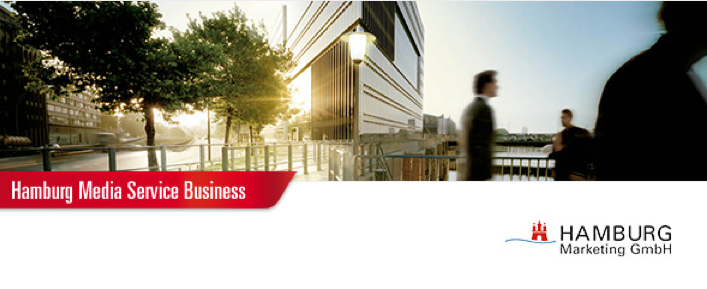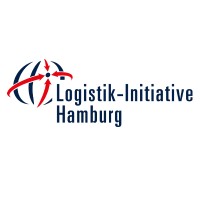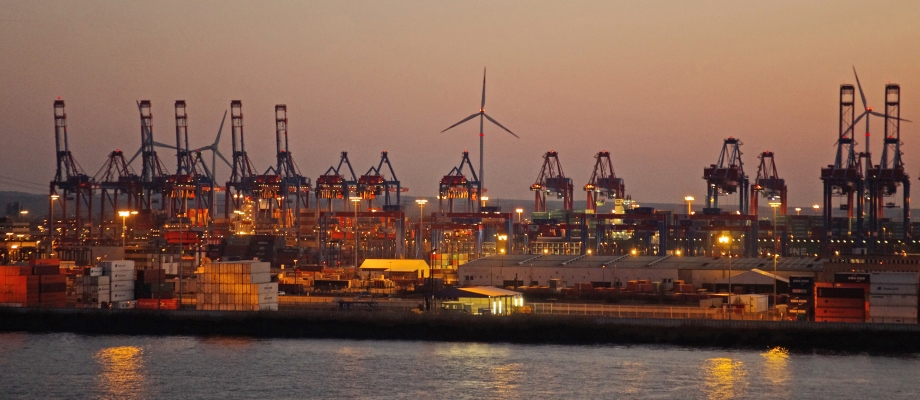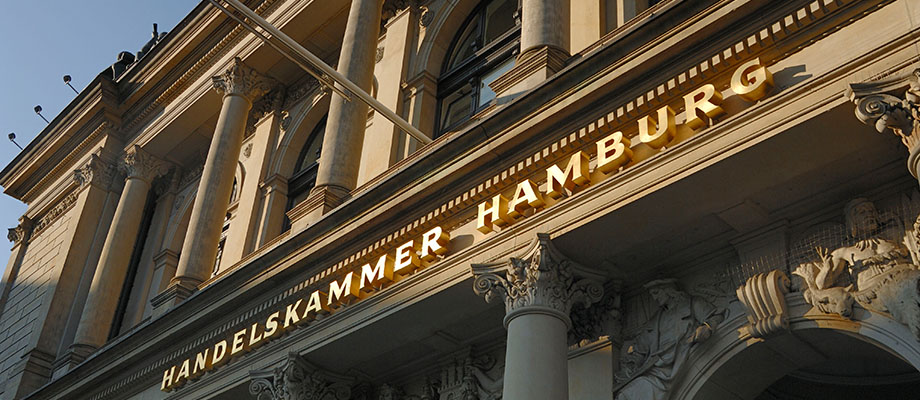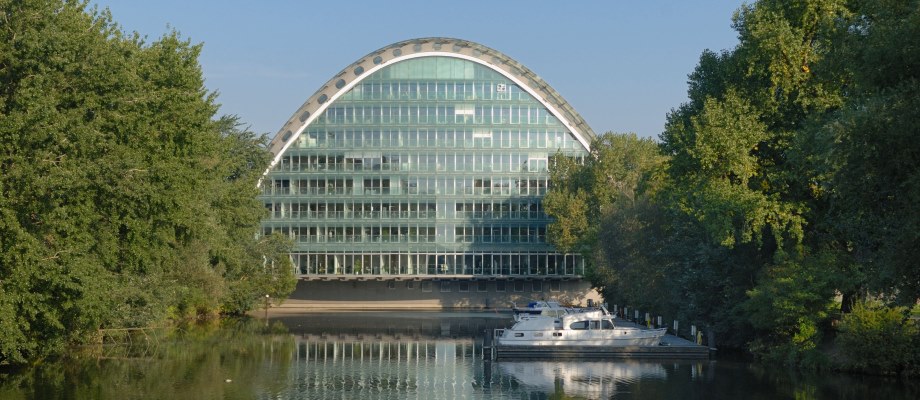With the North Sea and the Baltic Sea within easy reach, the Hamburg Metropolitan Region is the most dynamic and fastest-growing conurbation in Germany. As a trading hub and logistics centre for the booming continent of Asia and the up-and-coming markets of Eastern Europe, the entire Metropolitan Region is profiting from global trade. The region has developed into the central goods hub of Northern Europe – not only because of its centuries-old tradition of overseas trade but also due to its location, excellent infrastructure, and comprehensive logistics services.
Today, the Hamburg Metropolitan Region is home to more than five million people, who treasure its unique waterside location and the atmosphere of this liveable metropolis. Since entry into the Hansaetic League in 1321, trade and shipping have ensured a cosmopolitan atmosphere in the maritime city. More than 32,000 trading companies with over 125,000 employees currently make Hamburg the leading foreign trade centre in Germany. The Hamburg Metropolitan Region has a pivotal role in the global market in terms of industries strongly connected to the logistics sector, including aviation, maritime industries, information technology and renewable energy.
A crucial growth factor is the Port of Hamburg, which ranks among the world's largest container ports. With an annual throughput of more than nine million standard containers, Hamburg is Europe's second-largest container port. It owes its success largely to its central location in northern Europe, some 120 kilometres inland from the North Sea. The Port of Hamburg is an important link between the Baltic Sea and overseas trading partners. Moreover, Hamburg also boasts Europe's largest railway port. A dense traffic network swiftly connects the port's freight terminals and port facilities with all destinations in central and northern Europe. Due to continuous globalisation and the opening up of eastern Europe in recent decades, the logistics heart of northern and eastern Europe has shifted to the Hamburg region. This makes it the leading northern European logistics location and one of the most dynamic economic and logistics regions in Germany. That is why national and international companies choose Hamburg as the base for their global supply networks. In February 2014, Munich-based logistics magazine Verkehrsrundschau identified Hamburg as Germany's most popular logistics hub. Hamburg topped the ranking ahead of Germany's 12 other major logistics hubs. Whether it's road, air, water or rail, all means of transport are heavily present in this region. The vast cargo turnover enables logistics companies to put in place a high-frequency supply chain while offering customers flexibility and excellent service. These conditions have turned logistics into a significant factor helping to bring about economic growth: The number of jobs in the region's logistics sector increased by 12% from 2005 to 2011, and about 12,600 companies provide employment for 400,000 people in the local logistics industry.
The Port of Hamburg is growing continuously. On the Elbe, an increasing number of ever-larger ships require handling within narrow time frames. According to a survey by the Institute of Shipping Economics and Logistics, the Port of Hamburg has the potential to handle up to 25 million containers by 2025. Europe's most modern container terminals such as Container Terminal Altenwerder and Eurogate are already located in Hamburg. In preparation for a further increase in capacity, the Hamburg Port Authority has launched a comprehensive investment programme. In the medium term, up to 3 billion Euros will be invested in expanding the port infrastructure. Measures include the expansion and maintenance of the port's railway network. In addition, the flow of goods along the river will be optimised by means of innovative traffic management systems. For example, a new IT platform will bring together all information on ship arrivals and departures from all of the parties involved in the handling process. This pilot project, called Prise, provides a more rapid flow of information in order to cope with the growing level of complexity in planning and execution. More efficient logistics processes, combined with the latest energy-saving concepts, are the components of port's drive to achieve sustainable operations. Hamburg has made environmental protection one of its top priorities. It aims to foster innovation in the whole logistics sector. With Hanse Globe, a prize for sustainable logistics, Hamburg aims to set an example by promoting environmental protection and social commitment in the logistics industry. In 2007, the Hamburg Logistics Initiative awarded this prize for the first time. With more than 500 corporate and institutional members from industry, trade and the services sector, the Hamburg Logistics Initiative is the largest network of its kind in Germany. Recently, it became the only logistics cluster in Europe to be awarded the Cluster Management Excellence Label GOLD by the European Commission's European Cluster Excellence Initiative. This proves the outstanding qualities of the Hamburg Logistics Initiative.
Hamburg is often chosen as a gathering place by logistics specialists from all over the world. This is particularly apparent every autumn for one week when Hamburg becomes the centre of focus for international shipping. Ship brokers from all over the world arrive in the Hanseatic city to visit their business partners. The highlight is the so-called “eisbeinessen” dinner. This dinner started modestly in 1948 with just a few guests and has since become the world's largest maritime meeting with over 5,000 participants from over 50 countries. Developments and trends in logistics are discussed by high-ranking delegations from Scandinavia, Saudi Arabia and China, among others. Logistics authorities will have a special reason to visit Hamburg in the summer of 2015 when the city hosts the port industry's most important international conference. For one week, the World Ports Conference will host about 700 representatives and decision makers from the maritime industry.
